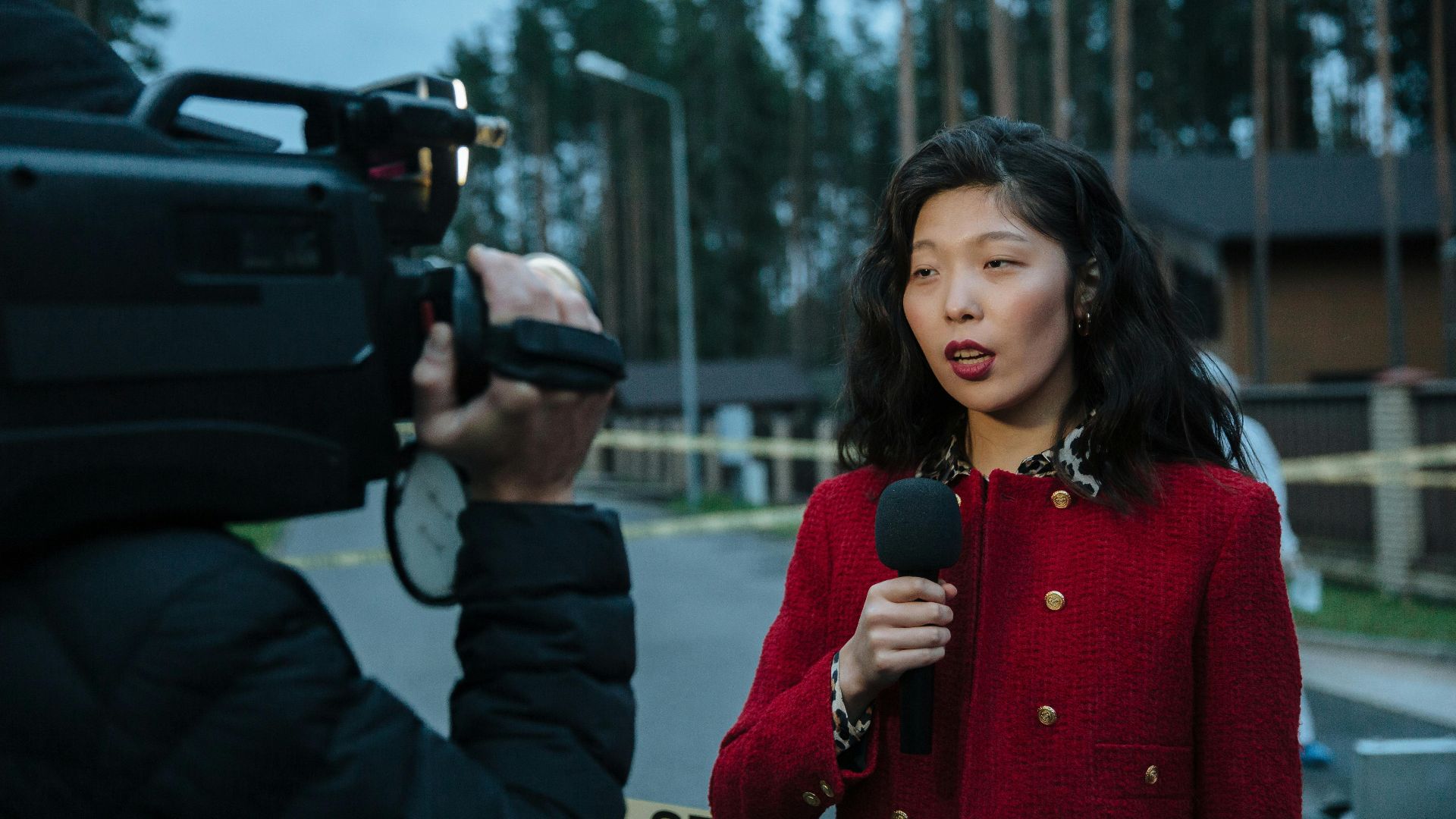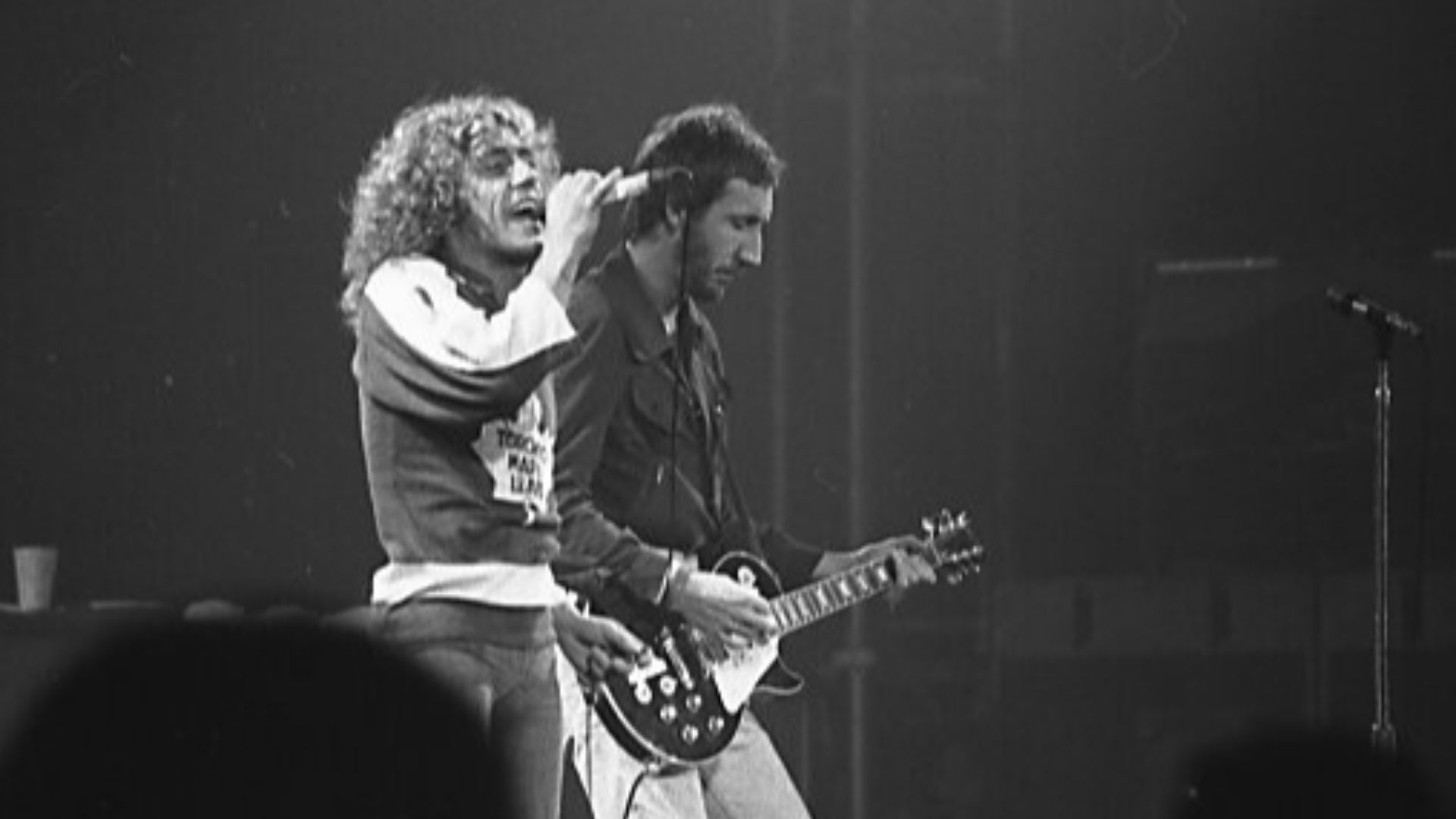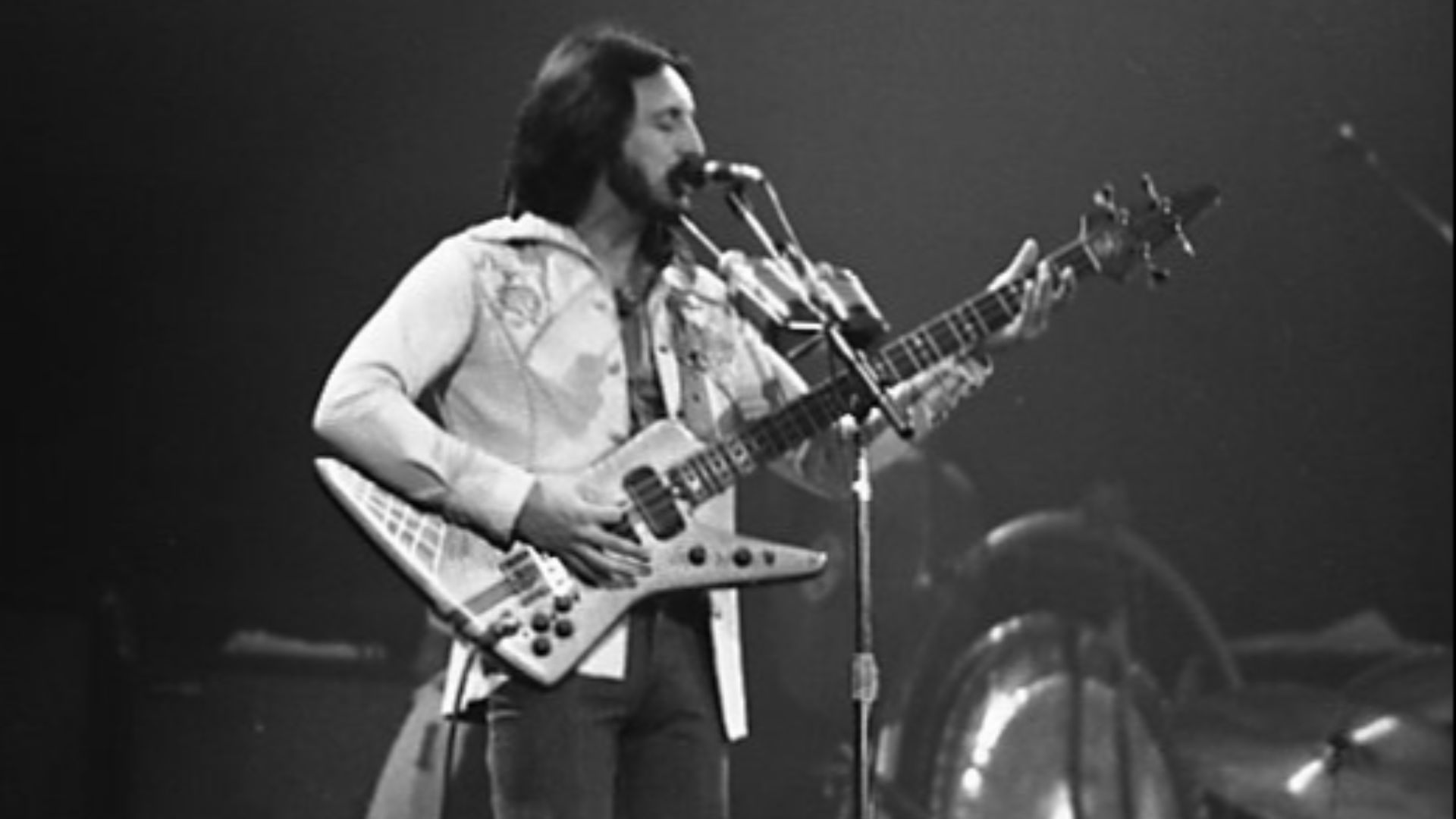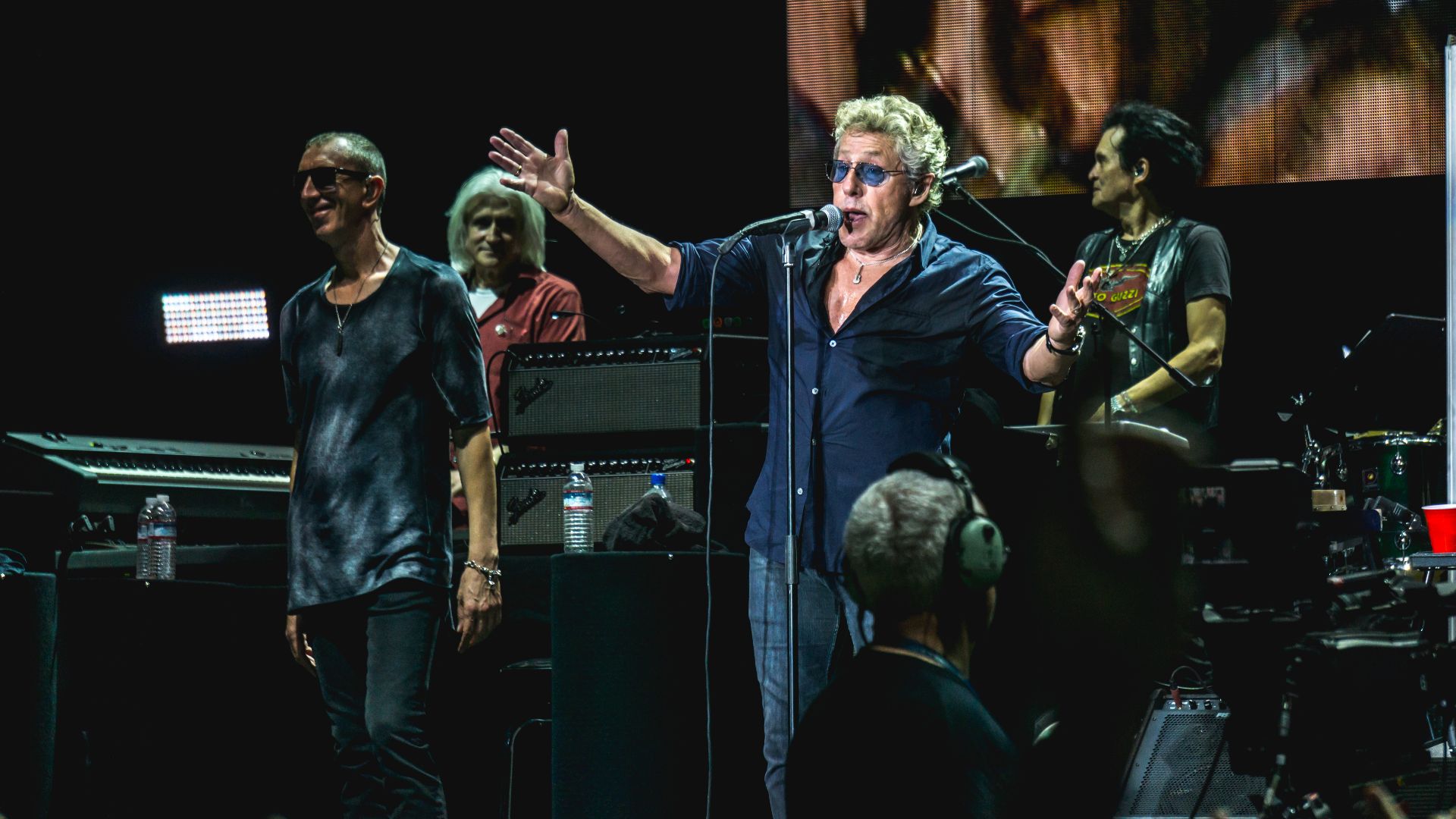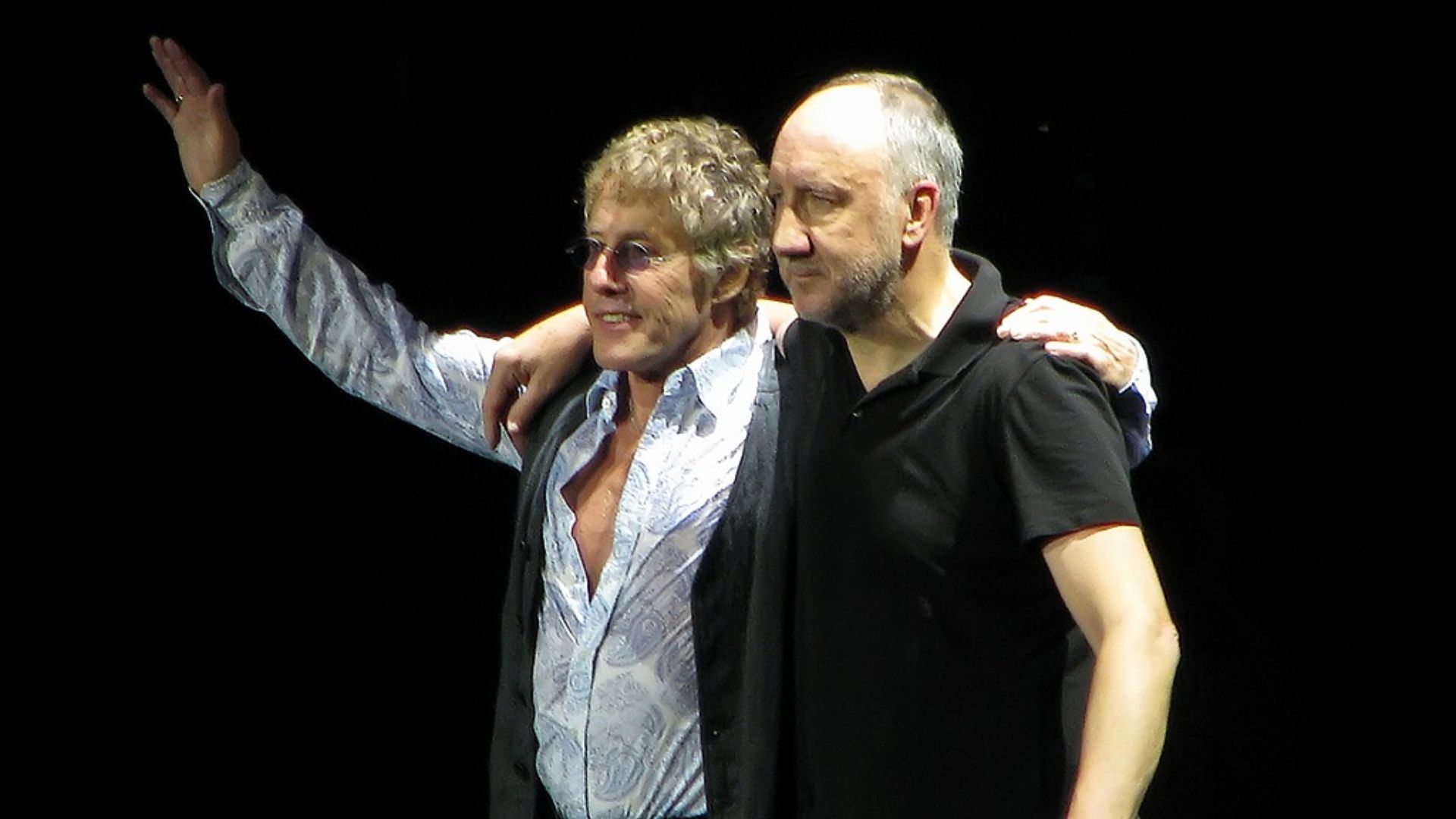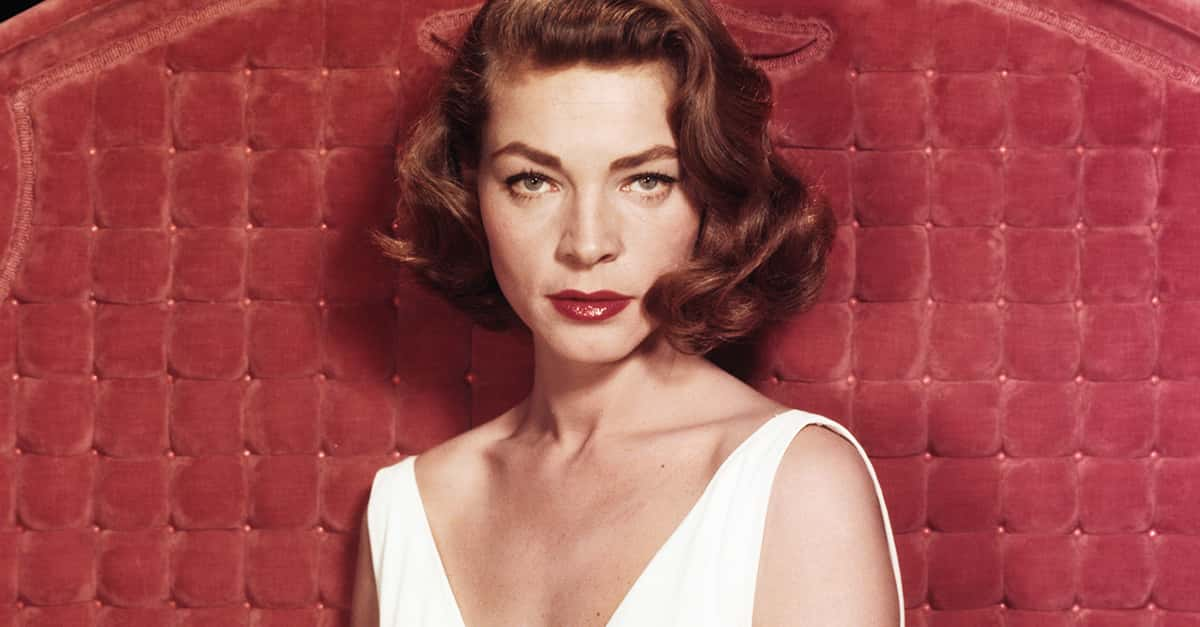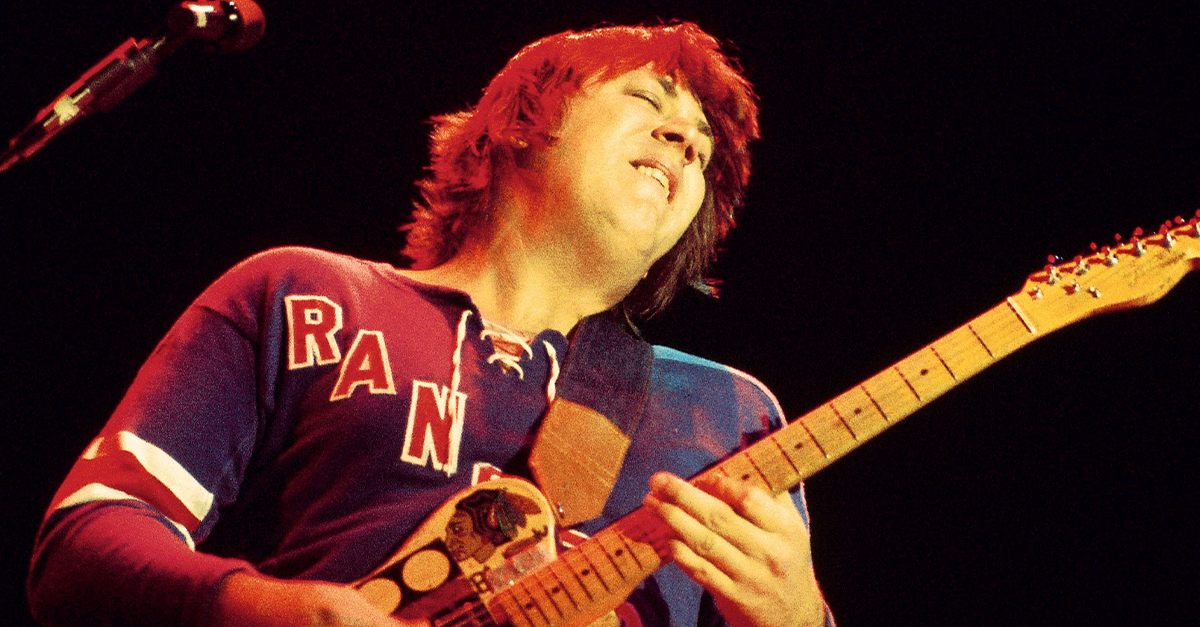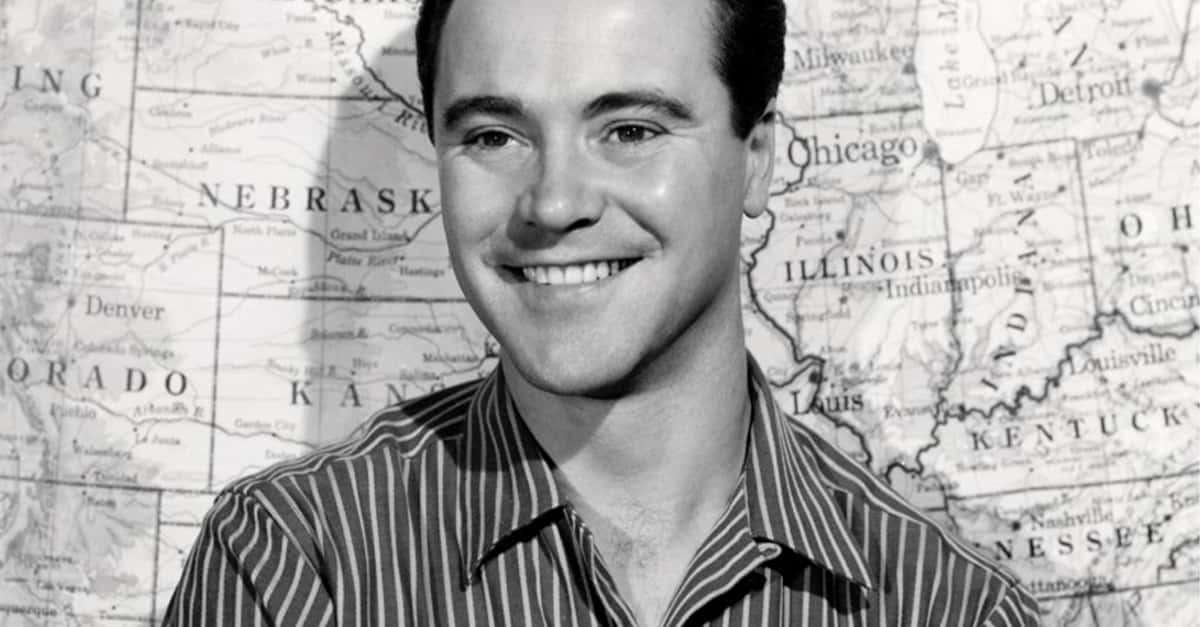The Calm Before the Tour
In late June 2002, The Who were set to open their U.S. tour in Las Vegas. Pete Townshend, Roger Daltrey, and John Entwistle were rehearsing hard and in good spirits. At 57, Entwistle was still known as “The Ox,” the quiet backbone of the group. No one expected what would happen next.
The Who’s Revival Era
By 2002, The Who were in a rare upswing. After years of loss and health struggles, Daltrey and Townshend had rebuilt trust and energy. Their shows were selling out again, and fans said they sounded as strong as ever. This tour was meant to mark a full-circle comeback for the band.
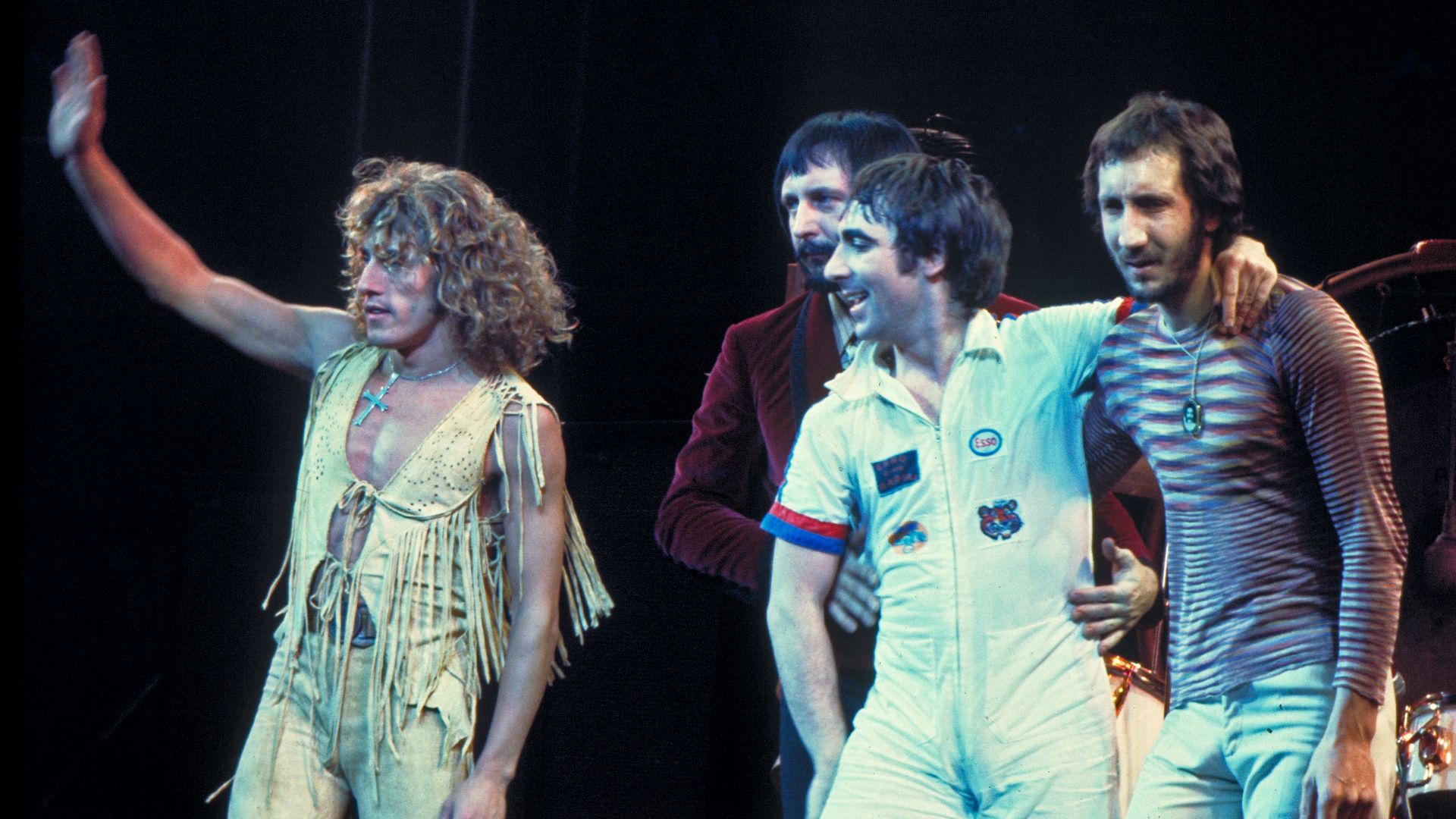 Jim Summaria, Wikimedia Commons
Jim Summaria, Wikimedia Commons
Entwistle’s Final Day
On June 26, Entwistle spent the afternoon doing interviews and preparing for the tour kickoff. That night, he dined with friends and returned to his suite at the Hard Rock Hotel. He seemed relaxed, even excited about performing again after a short break. No one sensed trouble.
The Hours Before His Death
Entwistle reportedly entertained a local dancer in his room that night. Hotel staff later said he appeared cheerful. Sometime in the early morning of June 27, he suffered a massive heart attack. His companion called security, but paramedics could not revive him.
The Devastating News Breaks
Tour manager Bill Curbishley received the call first. Daltrey and Townshend were asleep in their own hotel rooms when security knocked on their doors. “It didn’t feel real,” Daltrey recalled. “He was always the strong one.” The show, scheduled for that night, was instantly in question.
News Travels Fast
Before the band could issue a statement, Entwistle’s death leaked to the press. Local radio stations began reporting it within hours, forcing The Who to confirm before family and close friends had even been reached. “That was the hardest part,” Daltrey said later. “We couldn’t protect him—not even in death.”
Shock and Silence
Within hours, the story reached international news wires. Fans woke up to headlines announcing “The Who Bassist Dead in Las Vegas.” The band’s crew gathered in disbelief. Townshend wrote later that morning, “We’ve lost the heart of our band, and the air has gone out of the room.”
 Michael Ochs Archives, Getty Images
Michael Ochs Archives, Getty Images
The Official Cause
The Clark County coroner confirmed Entwistle’s cause of death: a heart attack triggered by substance use. It was a jarring detail that complicated the grief. The Who were seen as elder statesmen of rock by then—clean, sober, and past that era. The revelation reopened old wounds.
A Decision No One Wanted to Make
Management and promoters needed an answer fast: cancel the tour or continue? Contracts were signed, venues booked, and fans already traveling. Curbishley left the decision to Daltrey and Townshend. After hours of debate, they chose to play. “We knew John wouldn’t have wanted the music to stop,” Daltrey said.
Finding a Replacement Overnight
Townshend called Pino Palladino, a seasoned session bassist who had played with him before. Pino flew in immediately. He spent a full day rehearsing in silence, listening to Entwistle’s isolated bass tracks. “I didn’t try to copy him,” he later said. “You can’t replace John Entwistle.”
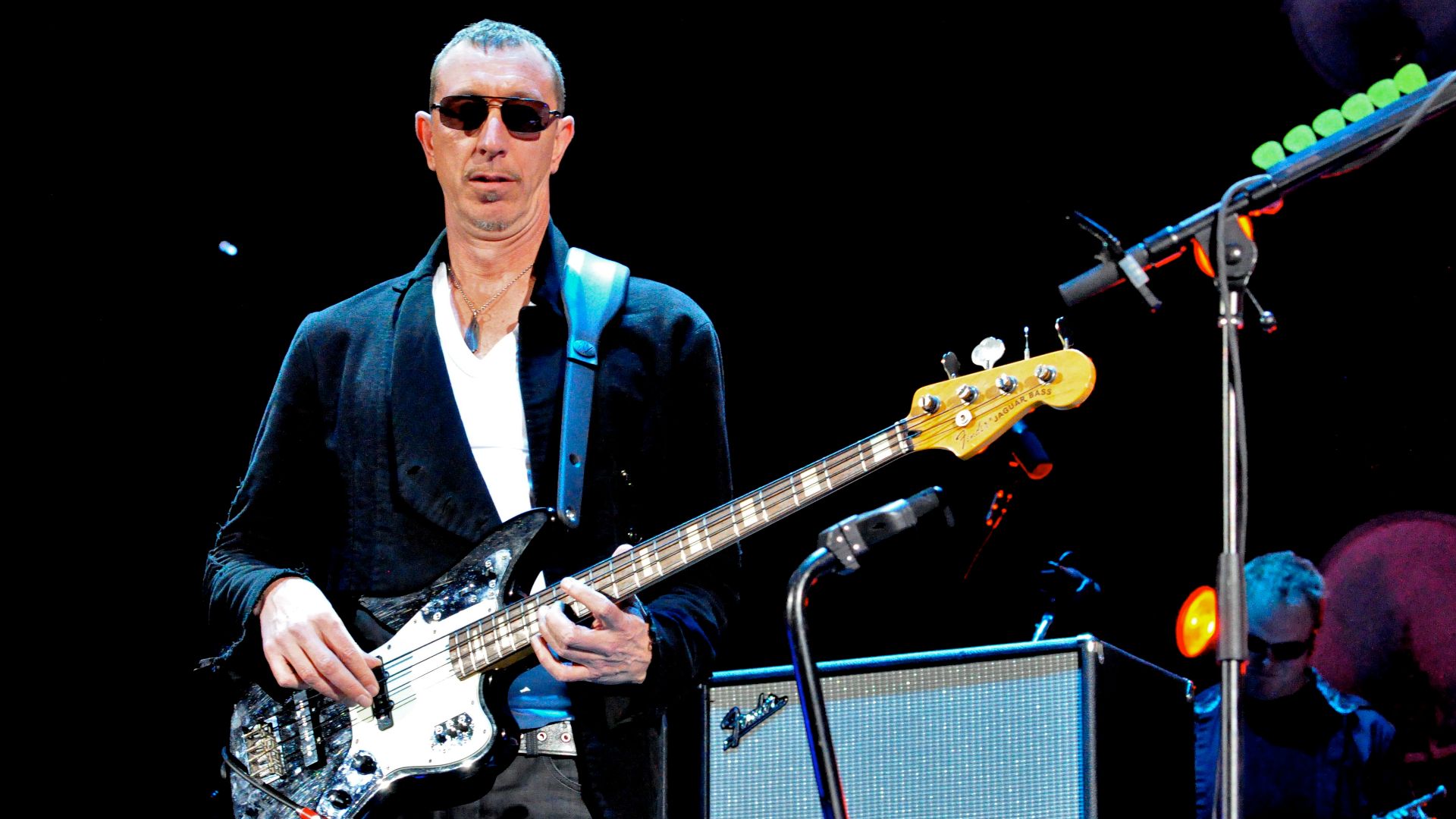 Joe Bielawa from MInneapolis, USA, Wikimedia Commons
Joe Bielawa from MInneapolis, USA, Wikimedia Commons
The First Show Without John
On June 28, The Who took the stage at the Hollywood Bowl—less than 48 hours after losing their friend. The crowd rose in a long standing ovation before the first note. Daltrey later admitted he nearly walked offstage. “I was shaking,” he said. “It didn’t feel right.”
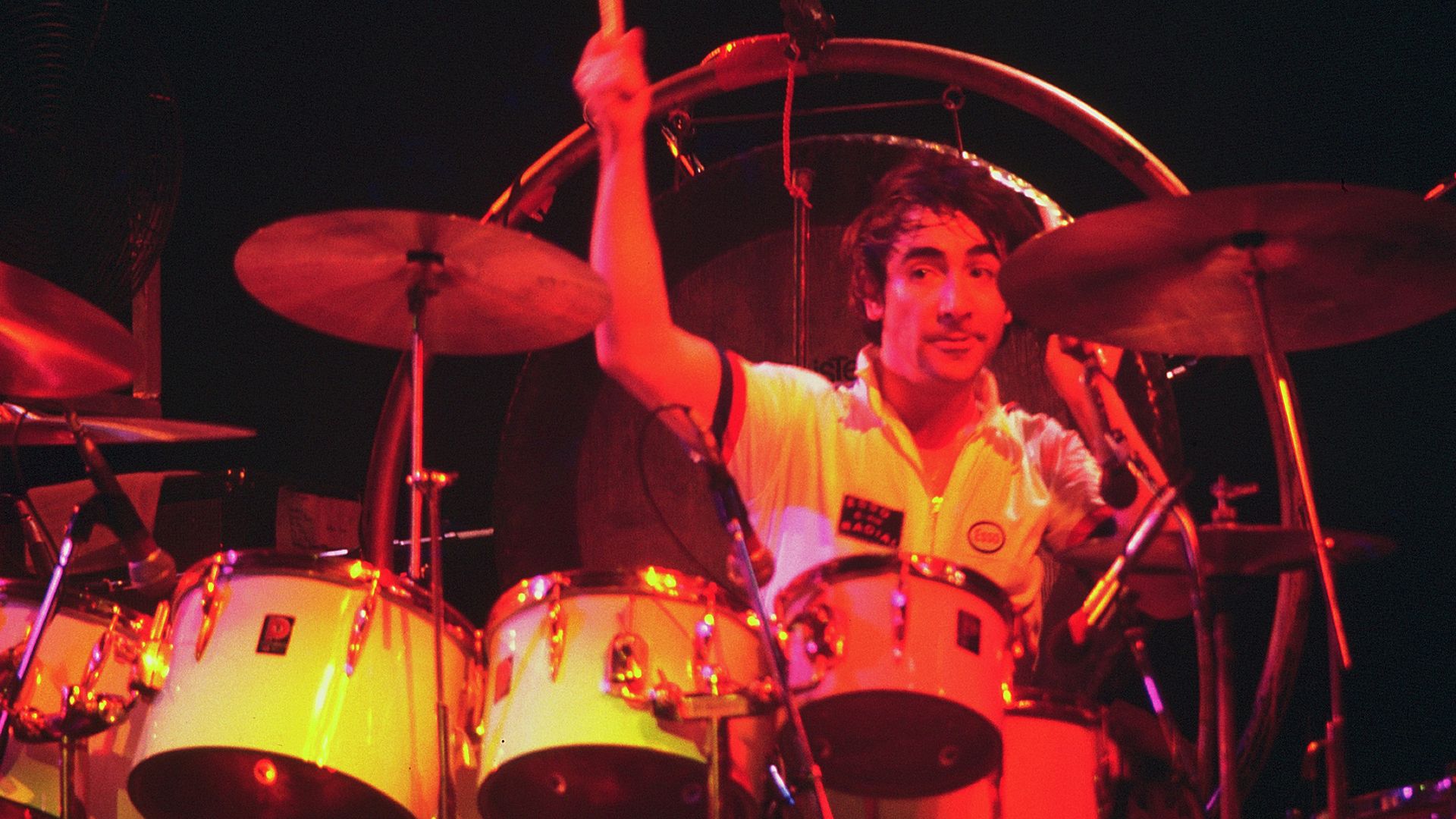 Jim Summaria, Wikimedia Commons
Jim Summaria, Wikimedia Commons
An Empty Space on Stage
Entwistle’s amp and microphone stand were left in place that night. The lighting crew dimmed that part of the stage. “It was like he was still there,” a fan recalled. Some audience members cried as the band opened with I Can’t Explain—a fitting title for the moment.
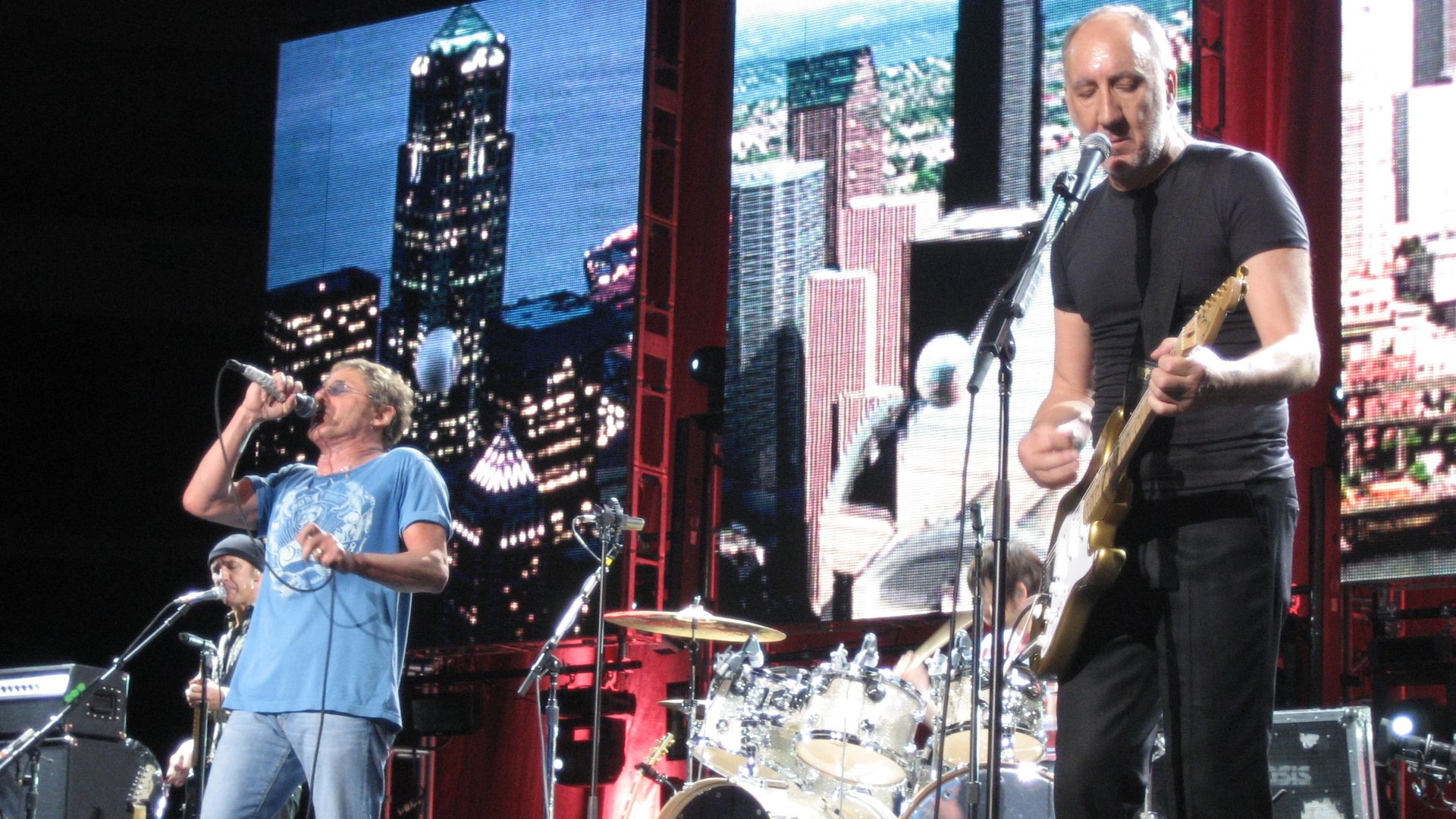 User:Mufc13, Wikimedia Commons
User:Mufc13, Wikimedia Commons
Mixed Reactions from Fans and Critics
Reactions were split. The Los Angeles Times praised the performance as “gritty and emotional.” Others called it “too soon.” Message boards and fan clubs lit up with arguments about respect versus exploitation. Some fans felt it was healing; others said it crossed a line.
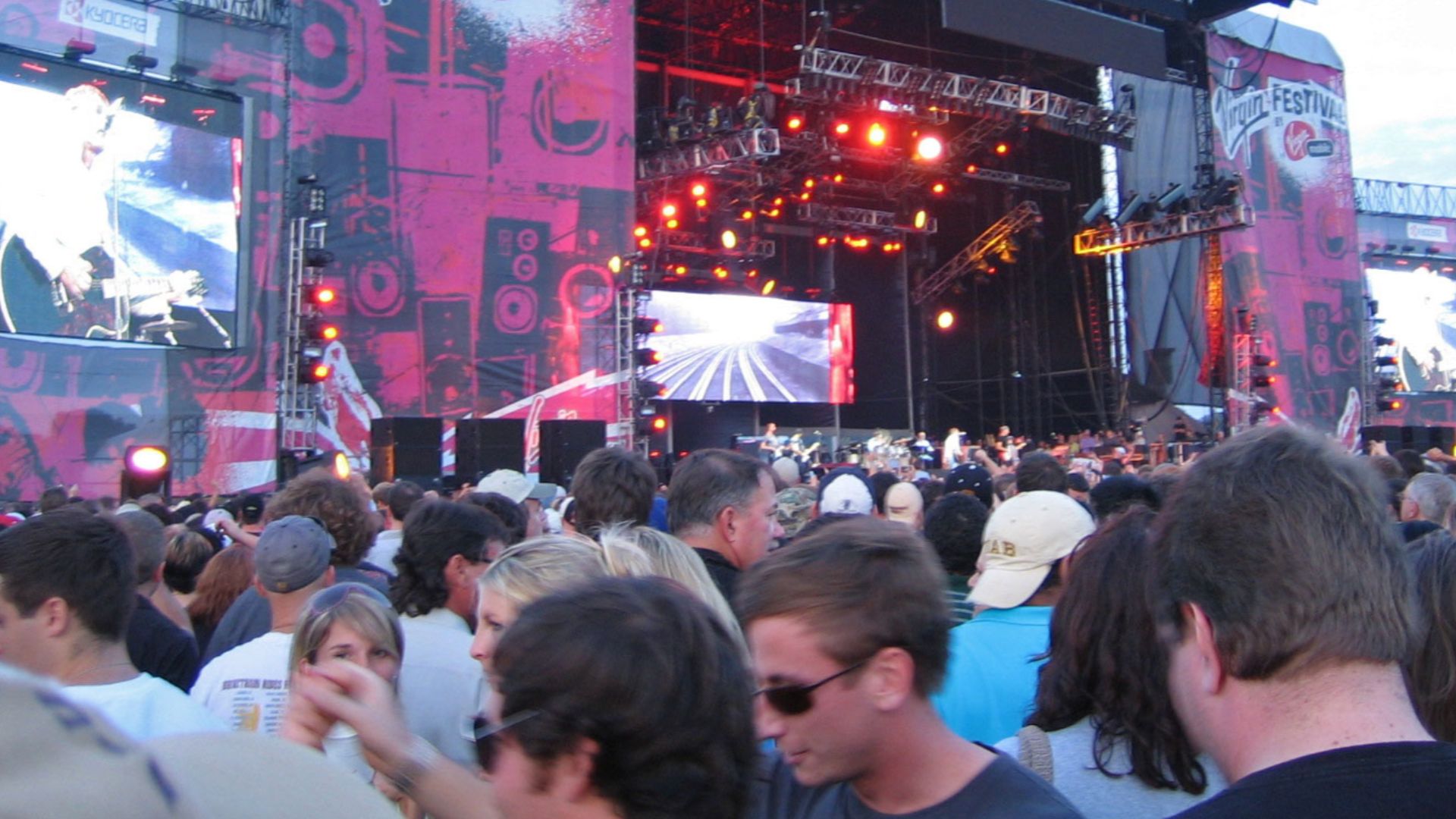 Joe Loong from Reston, USA, Wikimedia Commons
Joe Loong from Reston, USA, Wikimedia Commons
Townshend’s Emotional Conflict
Townshend described the show as “one long trance.” He later said, “I wasn’t playing—I was surviving.” Writing on his website, he admitted that part of him felt angry. “We should have been at a wake, not on stage. But somehow, the stage was our wake.”
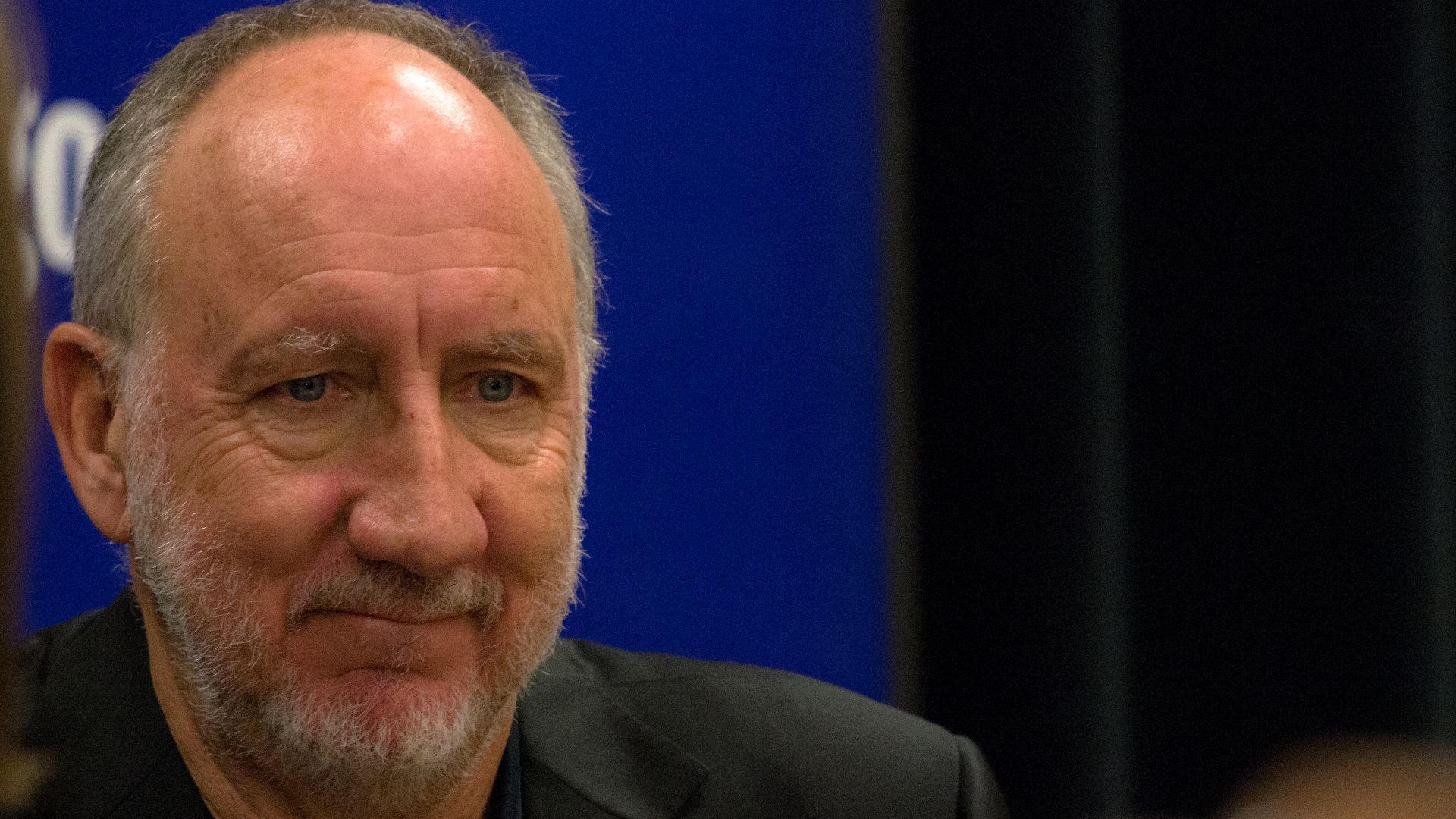 Ross from hamilton on, Canada, Wikimedia Commons
Ross from hamilton on, Canada, Wikimedia Commons
The Money Question
Rumors spread that financial pressure pushed the band to perform. Promoters stood to lose millions if the tour was canceled. Daltrey denied that money had anything to do with it. “We’ve never been about that,” he said. “We did it because we couldn’t face stopping.”
The Fans Divide Online
In early fan forums and news comment sections, debates raged. Some said The Who’s decision to perform was “a beautiful tribute,” while others called it “cold.” Townshend read some of the posts himself. “You can’t win with grief,” he wrote later. “Everyone expects you to feel it the same way they would.”
The Band’s Emotional Divide
Insiders said Daltrey and Townshend grieved differently. Daltrey was visibly shaken, while Townshend retreated into work. Crew members described the first few shows as “quiet backstage, no jokes, no smiles.” Still, every night, they played tighter—and the crowds grew more supportive.
Fans Rally Around the Band
As the tour went on, the audience began to serve as a kind of therapy. Fans brought banners that read “The Ox Lives On.” At one show, someone threw a white bass pick onstage. Daltrey picked it up, looked at it for a long moment, and kept singing.
Honoring The Ox on Stage
During later tour dates, the band added a short bass solo before each show using one of Entwistle’s recorded performances. His image was projected on screens during My Generation. The crowd would roar each time it appeared. “That’s the moment we all breathe again,” Daltrey said. “He’s still with us.”
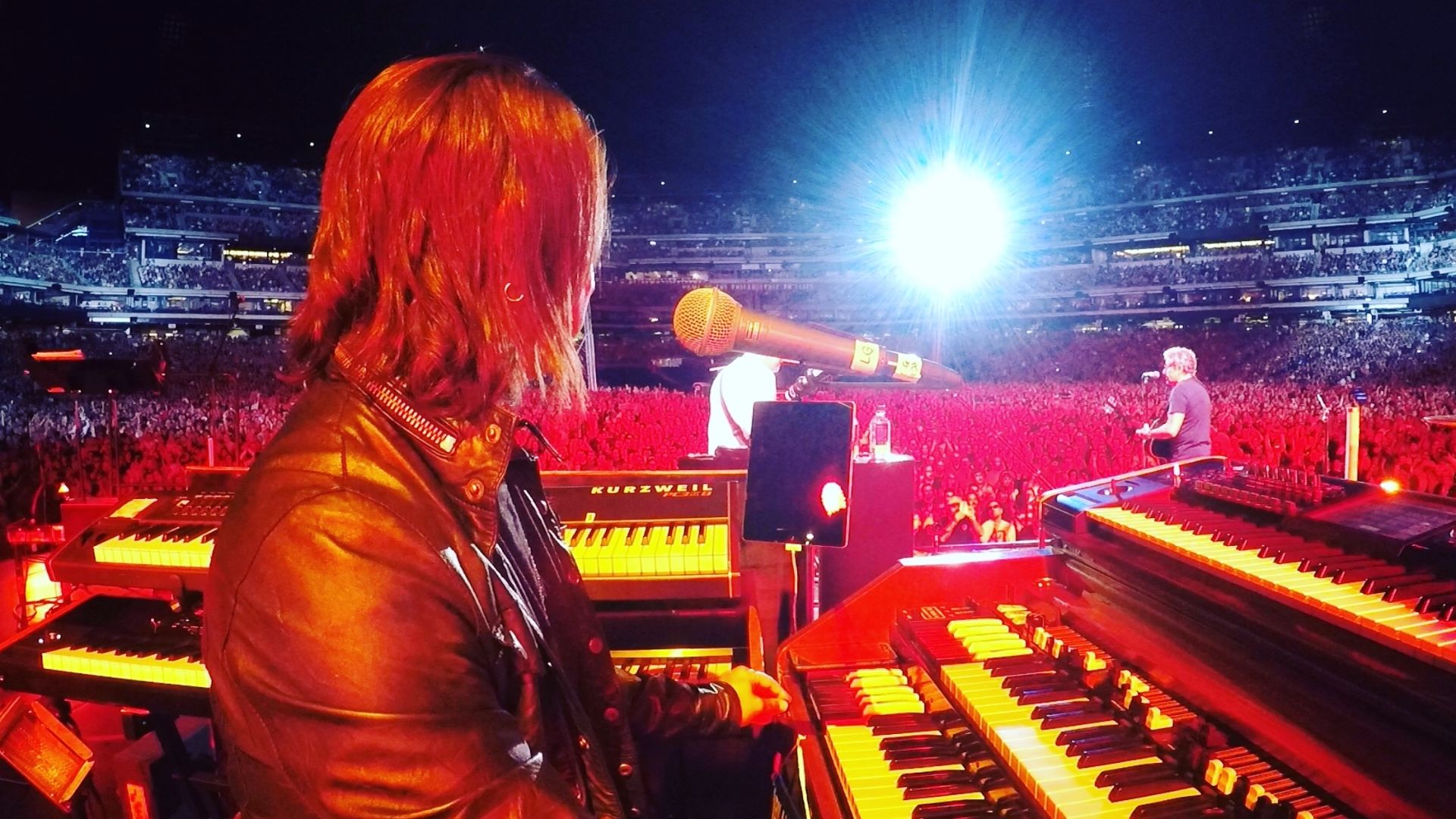 Maccafan2001, Wikimedia Commons
Maccafan2001, Wikimedia Commons
Pino Palladino’s Tribute Approach
Palladino didn’t mimic Entwistle’s aggressive, thunderous playing. Instead, he softened his tone, letting the songs breathe. “It wasn’t about showing off,” he said later. “It was about respect.” Fans praised him for balancing humility with skill—keeping the show alive without overshadowing its ghost.
 Joep Vullings (see dutch userpage), Wikimedia Commons
Joep Vullings (see dutch userpage), Wikimedia Commons
The Press Moves On, The Pain Doesn’t
By the tour’s end, headlines had shifted away from scandal to survival. Still, Townshend later admitted he never felt the same joy onstage again. “Something went out of the band that day,” he told Mojo. “We became two men honoring a third.”
Roger Daltrey Reflects
Years later, Daltrey said he still talked to Entwistle in his head before every show. “He’s there with me,” he said in 2019. “Sometimes I even feel him pushing me through the hard bits.” The admission showed how much that sudden loss had reshaped their bond.
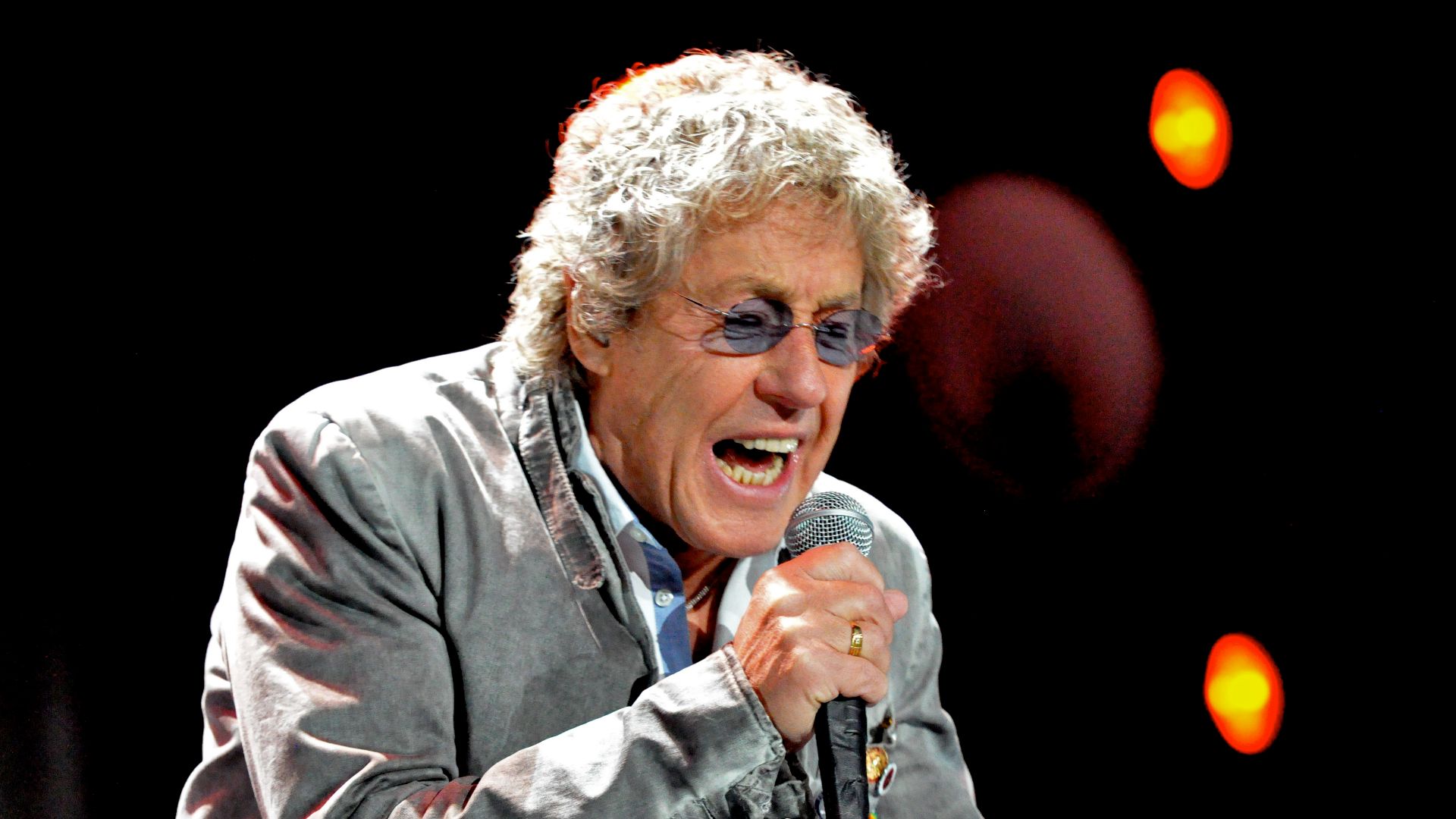 Joe Bielawa from MInneapolis, USA, Wikimedia Commons
Joe Bielawa from MInneapolis, USA, Wikimedia Commons
A Changed Band Forever
The Who continued to tour and release new music, but with a quieter tone. Albums like Endless Wire and their 2019 self-titled record carried more reflection than rebellion. “We’re not pretending to be who we were,” Daltrey said. “We’re just grateful to still be here.”
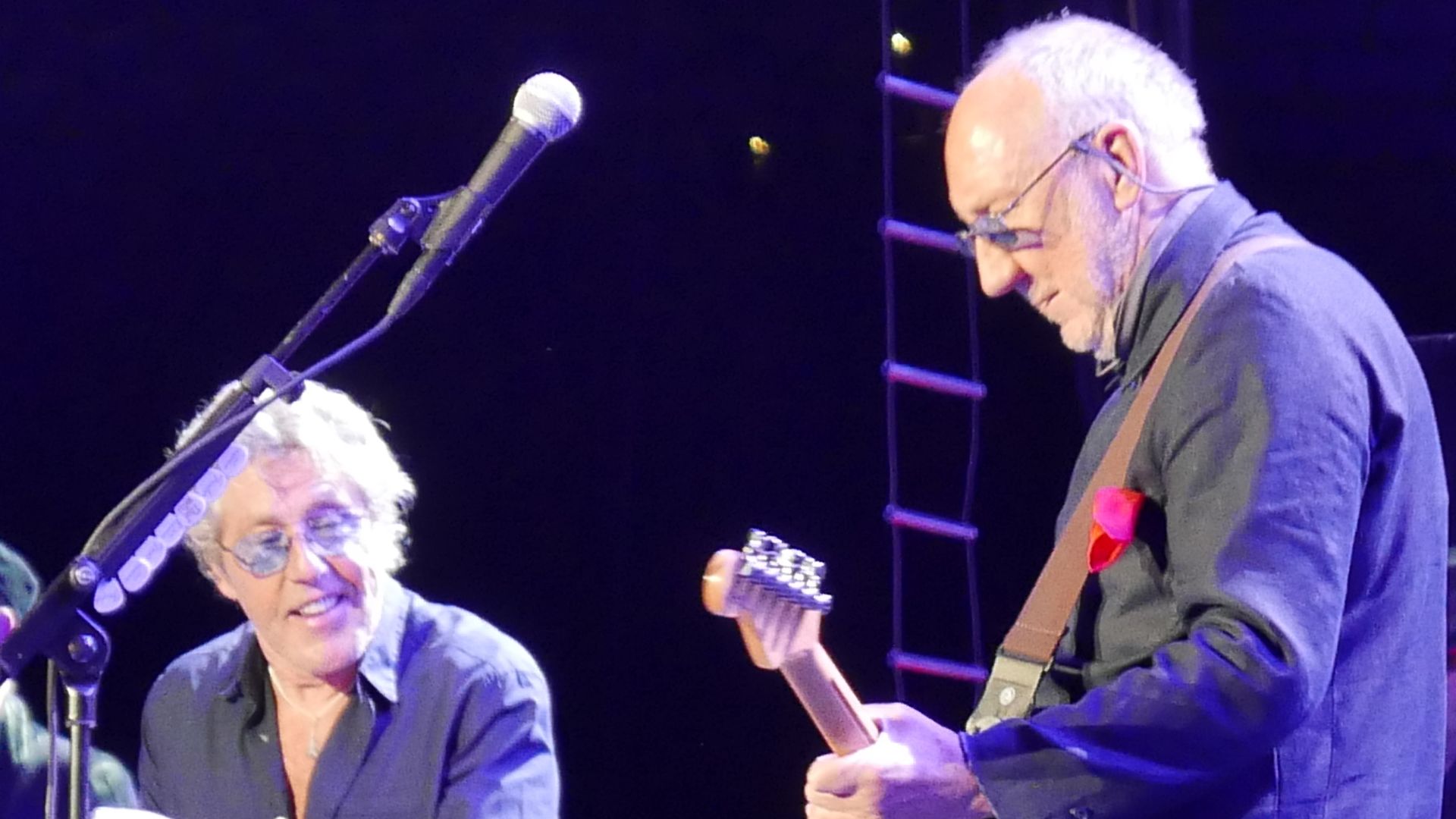 Davidwbaker, Wikimedia Commons
Davidwbaker, Wikimedia Commons
Tributes from Fellow Musicians
After his death, tributes poured in from across the rock world. Geddy Lee called him “the greatest rock bassist of all time.” Flea of the Red Hot Chili Peppers said, “He changed the way people think about the instrument.” Even Paul McCartney sent condolences, calling him “a true original.”
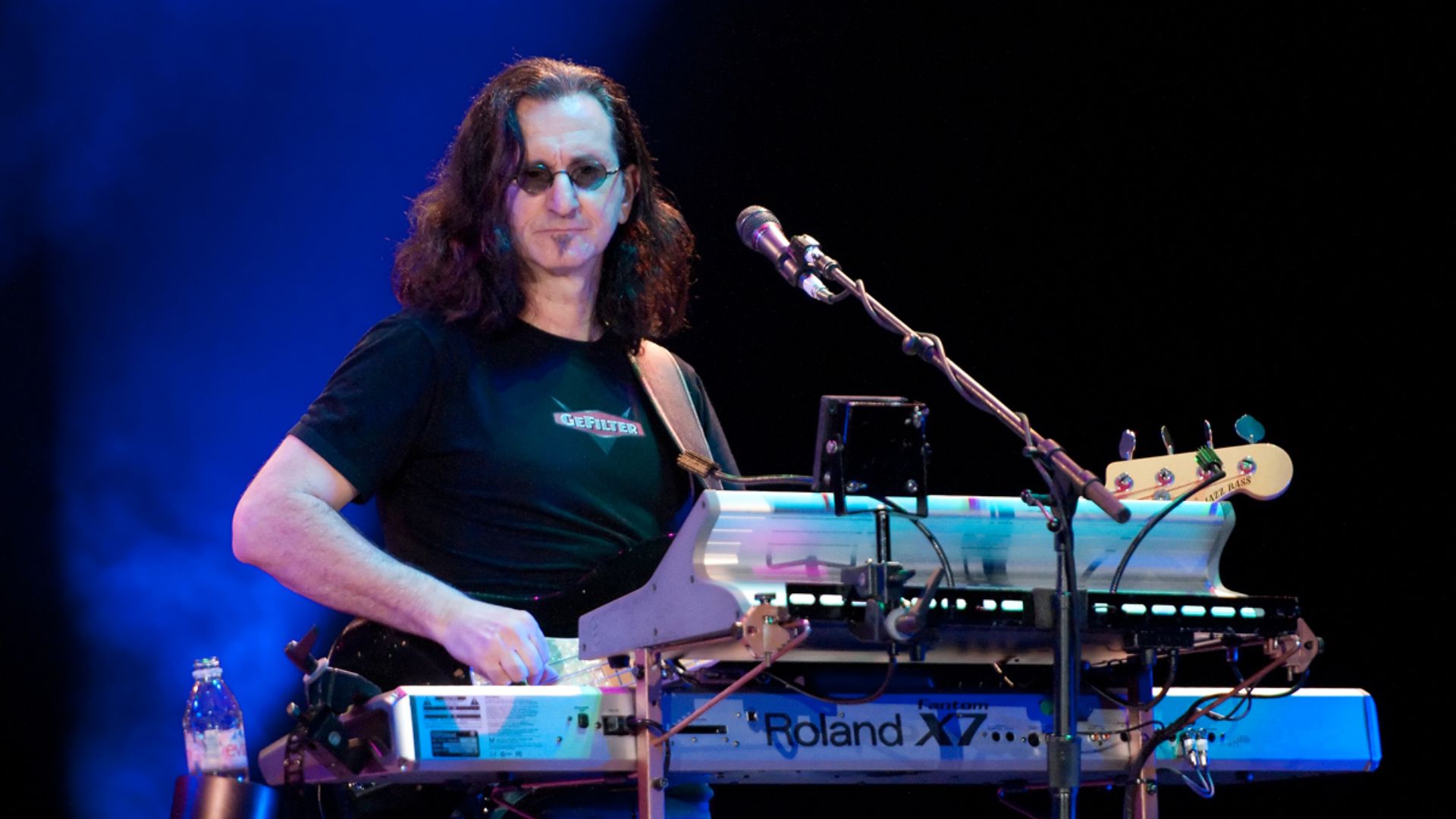 Vtpeters (talk) (Uploads), Wikimedia Commons
Vtpeters (talk) (Uploads), Wikimedia Commons
Entwistle’s Lasting Legacy
Entwistle’s bass playing remains legendary—his isolated tracks are studied by modern musicians for their technical brilliance. Geddy Lee of Rush once called him “the Jimi Hendrix of the bass.” Even decades later, his sound is considered unmatched. His absence left a permanent hole in rock’s rhythm section.
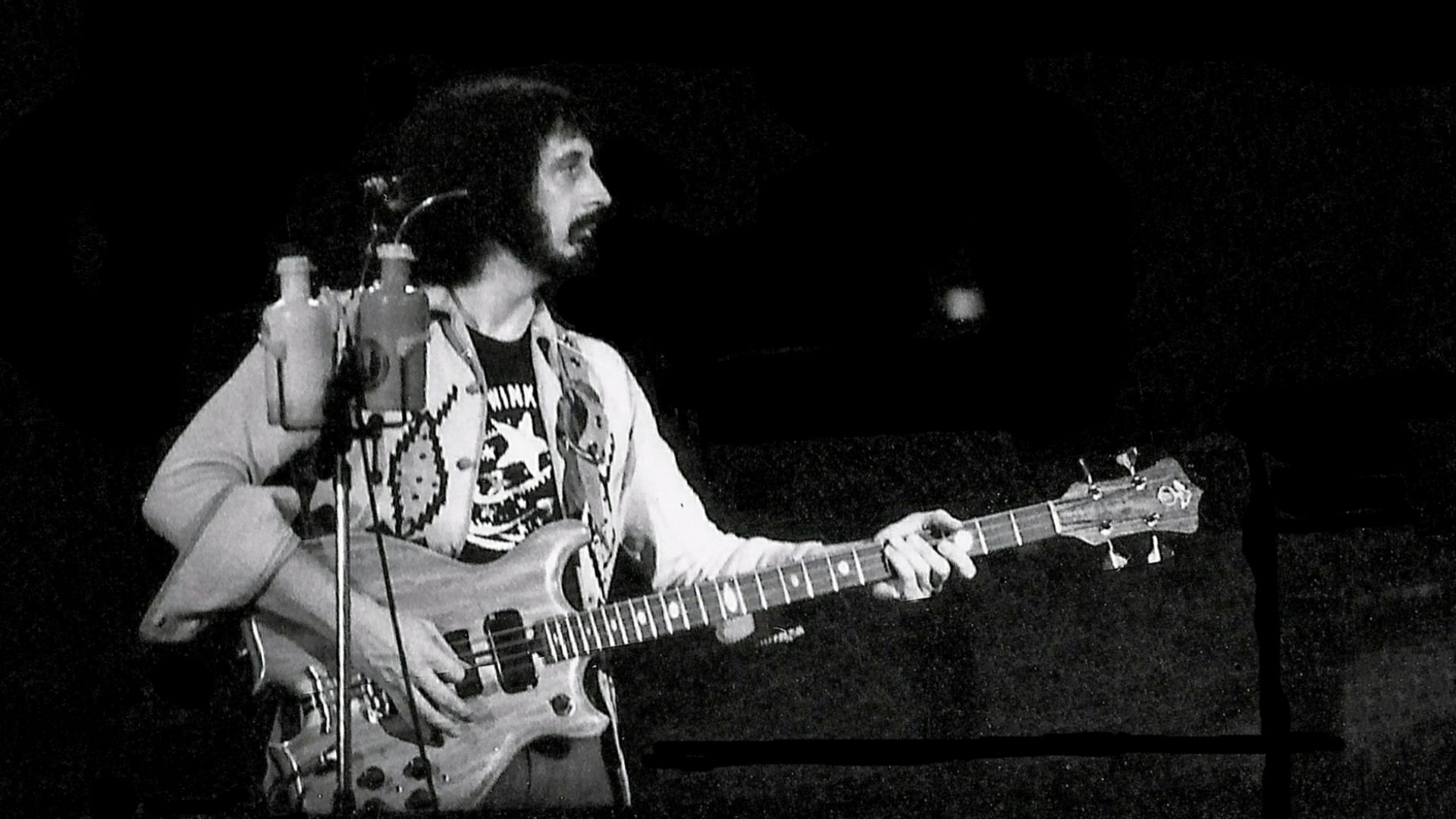 Bill Abbott, Wikimedia Commons
Bill Abbott, Wikimedia Commons
Scandal, Grief, and Endurance
The Who’s choice to perform days after Entwistle’s death still divides fans. But in hindsight, it defined their final era—not as a band chasing legacy, but one surviving loss. What began as scandal eventually became testament: they kept going, because they didn’t know how not to.
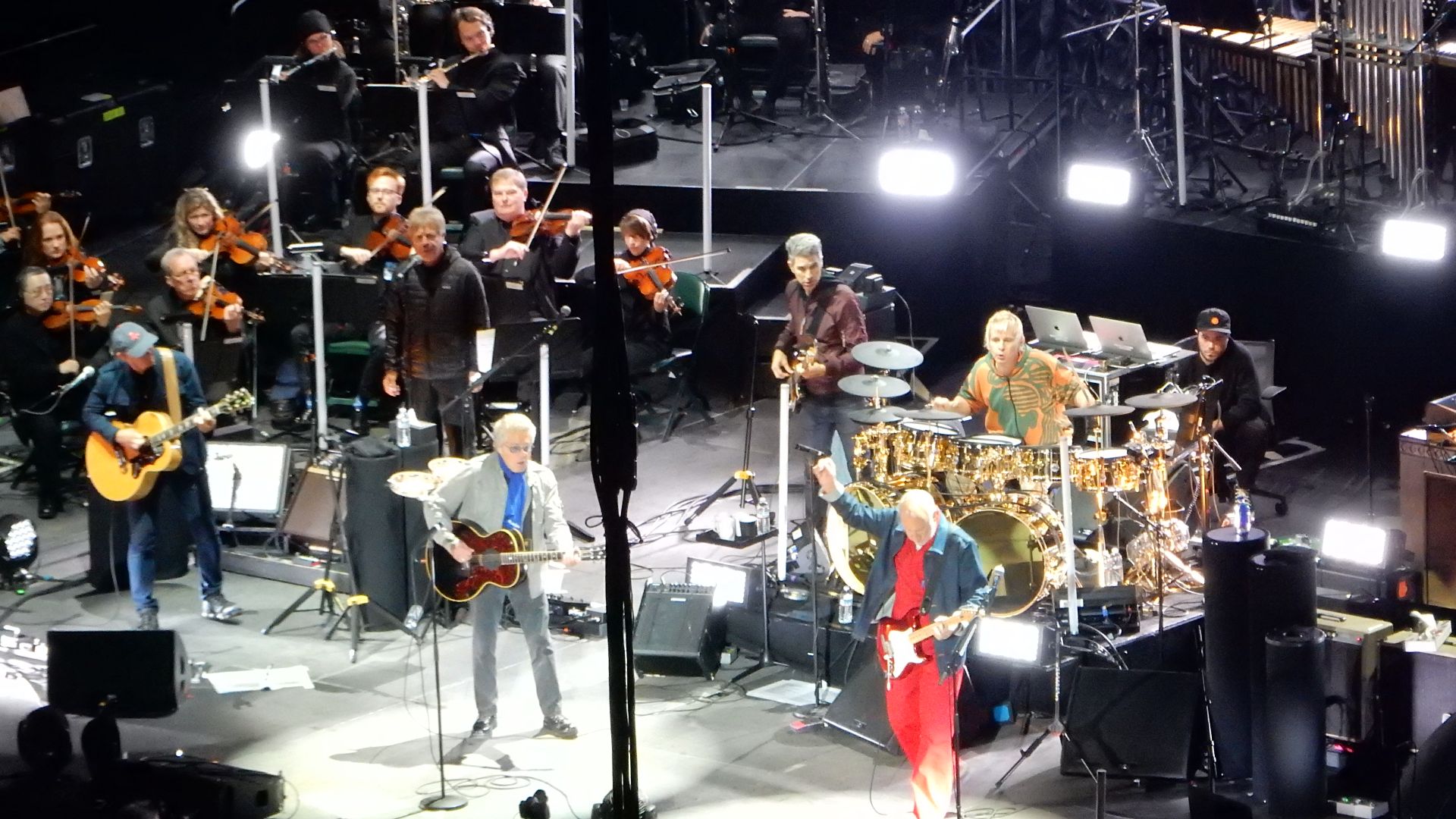 PaulHamaker, Wikimedia Commons
PaulHamaker, Wikimedia Commons
You Might Also Like:
The Rock 'n' Roll Legacy Of Journey’s Steve Perry
Live Performances That Became Unforgettable For All The Wrong Reasons





